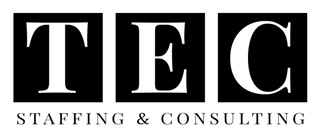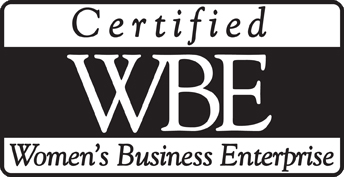When to Choose Temporary vs. Direct Hire Staffing Solutions
Match Your Hiring Strategy to Your Business Needs
Business needs change with market demands, economic shifts, and growth opportunities. Manufacturing plants in Berkshire County might need extra workers for large contracts. Local healthcare facilities often need specialized staff during busy seasons. Retail stores ramp up for holiday rushes. Each situation needs a different staffing approach to maintain productivity while controlling costs.
Understanding Temporary Staffing
Temporary staffing solves immediate business challenges. Take a manufacturing plant that wins a six-month contract - they need skilled workers fast but know the work has an end date. Or consider a medical office handling summer tourist season in the Berkshires, when patient numbers climb and regular staff take vacations. These scenarios make temporary staffing the perfect fit.
Temporary staffing brings speed and flexibility to your workforce. When a valued employee takes medical leave, a temporary worker keeps work moving. When business spikes, temporary staff handle the rush. You maintain productivity without committing to permanent hires.
The biggest advantage? Cost control. You bring in help during busy times without increasing your permanent payroll. This works well for businesses with changing workloads or seasonal peaks. Many Berkshire County businesses use temporary staff to handle tourism season, tax season, or manufacturing contracts.
The Power of Direct Hire
Direct hire builds your permanent team. When you need a production supervisor who'll learn your equipment inside and out, or an office manager who'll build long-term client relationships, direct hire makes sense. These roles need people who'll stick around and help your business grow.
Think about positions that shape your company's future. A sales manager who builds client relationships, a skilled machinist who runs complex equipment, or an accountant who manages your finances - these roles need permanent team members. Direct hire works best for positions requiring deep company knowledge or specialized skills.
Direct hire creates stability. Workers know they have a secure position, leading to stronger performance and company loyalty. They learn your systems thoroughly, build lasting work relationships, and become part of your company culture. This commitment shows in their work quality and customer service.
Temp-to-Hire: A Smart Middle Ground
Temp-to-hire combines the best of both approaches. A manufacturing company can watch how a potential supervisor handles the work floor. An accounting firm can see how a bookkeeper manages client relationships. Both employer and worker test the fit before making a permanent commitment.
This approach significantly reduces hiring risk. You see the worker's actual performance, not just interview responses. They prove their skills in real work situations. They learn your systems and show how they fit with your team. If both sides like what they see, you move to permanent hire. If not, both parties can move on professionally.
Temp-to-hire particularly suits roles where personality fit matters as much as skills. Customer service positions, team leadership roles, or client-facing jobs often work well with this approach. Workers can experience your company culture while you evaluate their soft skills in action.
The Money Side of Staffing
Each staffing option affects your finances differently. Let's break down the real costs:
Temporary staffing might show higher hourly rates but eliminates benefit costs, training expenses, and HR paperwork. You pay for productive hours and let the staffing agency handle everything else. This works well for managing variable costs during busy periods.
Direct hire usually means lower hourly rates but includes benefits, training, workspace costs, and HR management. You invest more upfront but build long-term value. This investment pays off when workers stay with you for years, growing their skills and contributing to company success.
Temp-to-hire balances these costs. You start with temporary rates, then shift to permanent employee costs if things work out. This lets you spread hiring investments over time while making sure you're investing in the right people.
Making Smart Staffing Decisions
Your business needs drive staffing choices. A summer tourist business in the Berkshires might need temporary staff from June through August. A growing manufacturer might need permanent workers for long-term expansion. A professional services firm might use temp-to-hire to carefully build their core team.
Consider your timing too. Direct hire takes longer but builds your permanent workforce. Temporary staffing moves quickly for sudden needs. Temp-to-hire gives you time to evaluate workers while keeping productivity high.
Look at your growth plans. Are you expanding into new markets? Opening new locations? Taking on bigger contracts? Match your staffing strategy to your business strategy. Temporary staff can help you test new opportunities. Direct hire builds your long-term capability.
The Power of Professional Staffing Partners
Working with a staffing agency in Berkshire County brings local market knowledge to your hiring process. They understand our region's business cycles, skill availability, and wage expectations. They maintain relationships with qualified workers and know who's available for different types of work.
Professional staffing services speed up your hiring process. They handle candidate screening, background checks, and employment paperwork. They check references and verify skills. This saves you time and reduces hiring risk.
A staffing partner also helps you stay flexible. Need to quickly scale up for a big order? They can find qualified temporary staff. Looking for permanent employees with specific skills? They'll focus on direct hire candidates. Want to test workers before committing? They'll set up temp-to-hire arrangements.
Moving Forward
Your staffing decisions shape your business success. Temporary staffing gives you workforce flexibility. Direct hire builds your permanent team. Temp-to-hire offers a careful path to permanent employment.
Consider partnering with a
staffing agency that knows Berkshire County. They'll help match your business needs with the right staffing approach. Whether you need temporary support for busy seasons, permanent workers for growth, or temp-to-hire arrangements to build your team carefully, professional guidance makes staffing decisions clearer and more successful.







